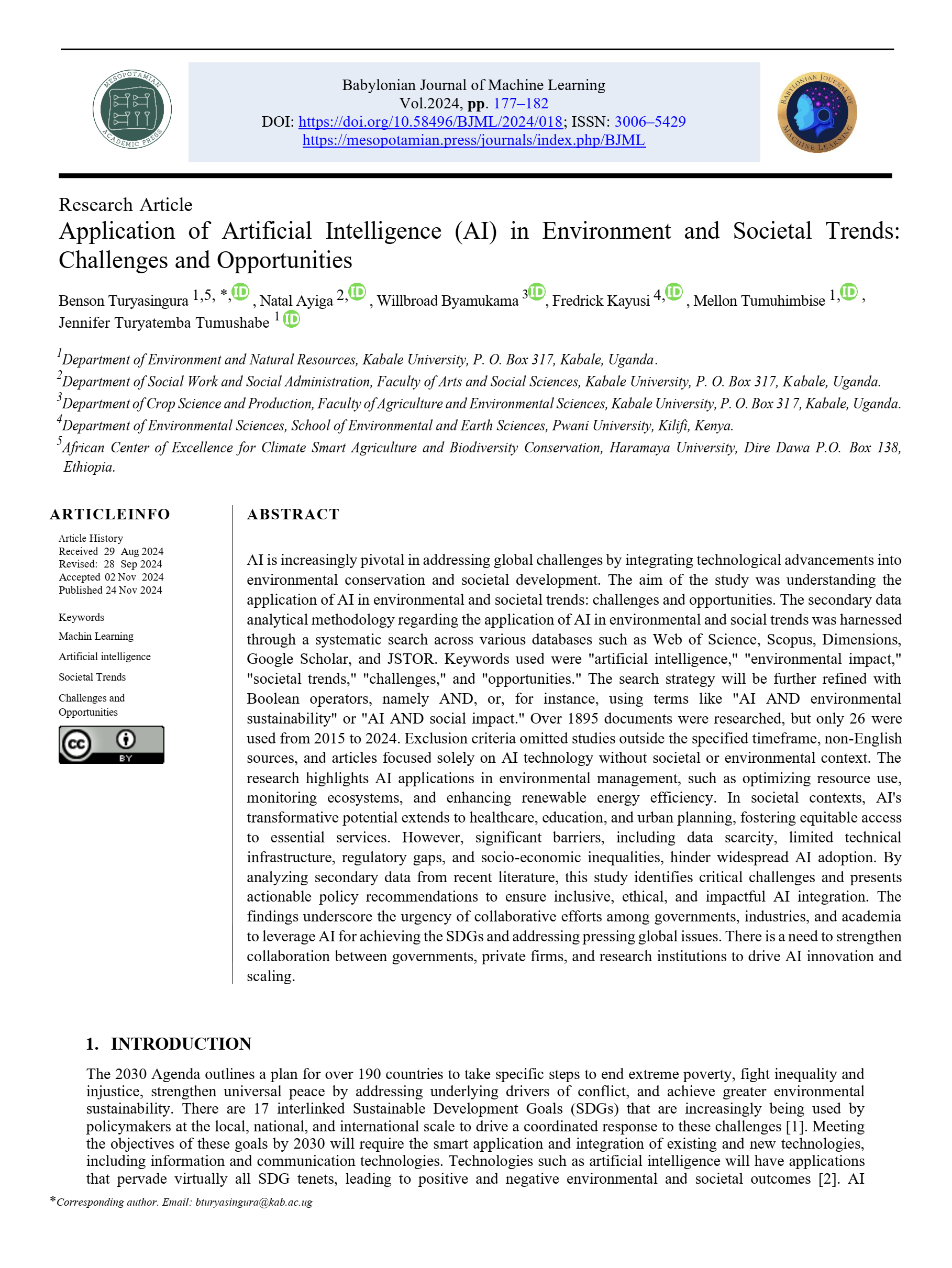Application of Artificial Intelligence (AI) in Environment and Societal Trends: Challenges and Opportunities
Main Article Content
Abstract
AI is increasingly pivotal in addressing global challenges by integrating technological advancements into environmental conservation and societal development. The aim of the study was understanding the application of AI in environmental and societal trends: challenges and opportunities. The secondary data analytical methodology regarding the application of AI in environmental and social trends was harnessed through a systematic search across various databases such as Web of Science, Scopus, Dimensions, Google Scholar, and JSTOR. Keywords used were "artificial intelligence," "environmental impact," "societal trends," "challenges," and "opportunities." The search strategy will be further refined with Boolean operators, namely AND, or, for instance, using terms like "AI AND environmental sustainability" or "AI AND social impact." Over 1895 documents were researched, but only 26 were used from 2015 to 2024. Exclusion criteria omitted studies outside the specified timeframe, non-English sources, and articles focused solely on AI technology without societal or environmental context. The research highlights AI applications in environmental management, such as optimizing resource use, monitoring ecosystems, and enhancing renewable energy efficiency. In societal contexts, AI's transformative potential extends to healthcare, education, and urban planning, fostering equitable access to essential services. However, significant barriers, including data scarcity, limited technical infrastructure, regulatory gaps, and socio-economic inequalities, hinder widespread AI adoption. By analyzing secondary data from recent literature, this study identifies critical challenges and presents actionable policy recommendations to ensure inclusive, ethical, and impactful AI integration. The findings underscore the urgency of collaborative efforts among governments, industries, and academia to leverage AI for achieving the SDGs and addressing pressing global issues. There is a need to strengthen collaboration between governments, private firms, and research institutions to drive AI innovation and scaling.
Article Details
Issue
Section

This work is licensed under a Creative Commons Attribution 4.0 International License.
Deprecated: json_decode(): Passing null to parameter #1 ($json) of type string is deprecated in /home/u273879158/domains/mesopotamian.press/public_html/journals/plugins/generic/citations/CitationsPlugin.php on line 68
